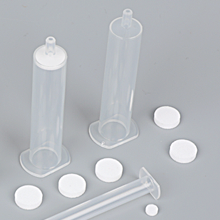close
Choose Your Site
Global
Social Media
Views: 0 Author: Site Editor Publish Time: 2025-05-21 Origin: Site








Have you ever wondered if filtered pipette tips can be reused safely in your lab? While saving costs is appealing, reusing these tips could affect experiment reliability and contamination control. Filtered pipette tips are essential in preventing sample contamination, especially in sensitive assays.
In this article, you'll learn about the design and function of Pipette Tips Filter, why reuse is generally discouraged, and how the latest advancements ensure optimal lab safety. We'll explore key aspects to help you make informed choices, including best practices and frequently asked questions.

Pipette Tips Filter are specially designed pipette tips equipped with a built-in filter barrier that blocks aerosols, liquids, and contaminants from entering the pipette body. This prevents cross-contamination and protects both samples and pipette mechanisms.
Prevent contamination between samples and pipettes
Reduce risk of false positives/negatives in sensitive experiments
Protect pipette internal components from damage and corrosion
Maintain accuracy and reproducibility in molecular biology, clinical diagnostics, and research
Filtered tips are especially critical in PCR, qPCR, and RNA/DNA analysis, where contamination can lead to compromised results.
| Feature | Benefit |
|---|---|
| Aerosol barrier filter | Blocks airborne contaminants |
| Hydrophobic membrane | Prevents liquid penetration |
| Universal fit | Compatible with most pipettes |
| Sterile packaging | Ensures contamination-free use |
Many labs consider reusing pipette tips to reduce costs. However, with Pipette Tips Filter, reuse is generally not recommended due to contamination risks.
Filter clogging: Filters can trap aerosols and particles that are hard to remove by washing.
Sample carryover: Residual liquid or DNA/RNA fragments can remain, risking cross-contamination.
Reduced filter effectiveness: Cleaning can damage the filter structure, compromising its protective barrier.
Accuracy impact: Even minute contamination affects quantitative assays, skewing results.
Scientific consensus suggests that single-use filtered tips ensure the highest level of experimental integrity.
| Misconception | Reality |
|---|---|
| "Sterilizing tips makes them safe to reuse" | Sterilization often can't remove internal contamination from filters |
| "Washing removes all contaminants" | Filter pores and hydrophobic membranes retain residues |
| "Reused tips save enough money to justify risks" | Data loss and failed experiments outweigh cost savings |
Manufacturers, including Suzhou Kaihong Polymer Technology Co., Ltd, have developed Pipette Tips Filter with features addressing contamination concerns and improving usability.
High-quality hydrophobic filters: Enhance liquid repellent properties to prevent carryover
Robust filter membranes: Maintain integrity under pipetting stress
Ergonomic tip designs: Ensure consistent volume delivery and easy fitting
Quality control: Sterile, DNase/RNase-free tips certified for sensitive assays
These advancements ensure reliability in applications demanding the utmost precision and safety.
| Innovation | Impact |
|---|---|
| Hydrophobic membrane | Minimizes aerosol and liquid penetration |
| DNase/RNase-free treatment | Ensures no enzymatic contamination |
| Compatible universal sizing | Simplifies lab inventory management |
| Sterile, individually packed | Prevents pre-use contamination |
To maximize the benefits of Pipette Tips Filter, laboratories should follow strict handling guidelines:
Always use fresh tips for each sample to prevent cross-contamination.
Avoid touching tips to non-sterile surfaces.
Store tips in clean, dry environments to maintain sterility.
Dispose of tips properly after use; do not attempt washing or autoclaving.
Regularly calibrate pipettes and verify tip fit and seal.
Implementing these practices maintains sample integrity and prolongs equipment life.
While the single-use policy for filtered tips may increase consumable costs, it protects data quality and experiment success. Many labs are now exploring sustainable options:
Recycling programs: Some providers offer recycling for used tips.
Biodegradable tips: Emerging materials reduce environmental impact.
Bulk purchasing: Reduces packaging waste and lowers per-unit cost.
Balancing cost, sustainability, and contamination control is an ongoing challenge in laboratory management.
Filtered pipette tips are vital for ensuring accurate, contamination-free lab work. Reusing them compromises their protective function and risks experiment failure. Advances by companies like Suzhou Kaihong Polymer Technology Co., Ltd ensure high-quality Pipette Tips Filter that deliver consistent performance for critical research. Follow proper usage practices to safeguard your results and maintain lab safety.
If you seek reliable, efficient Pipette Tips Filter, consider Suzhou Kaihong Polymer Technology Co., Ltd for quality and innovation tailored to your lab needs.
A: Sterilization does not remove internal contaminants trapped in filters. Reuse risks cross-contamination and is not recommended.
A: Filtered tips include an aerosol barrier that prevents contaminants from entering the pipette, unlike regular tips.
A: Most filtered tips, including those from Suzhou Kaihong Polymer Technology, have universal sizing compatible with standard pipettes.
A: Molecular biology, clinical diagnostics, PCR, qPCR, and RNA/DNA analyses benefit significantly from filtered tips due to contamination risks.
A: Keep them in a clean, dry place, away from dust or moisture to maintain sterility before use.